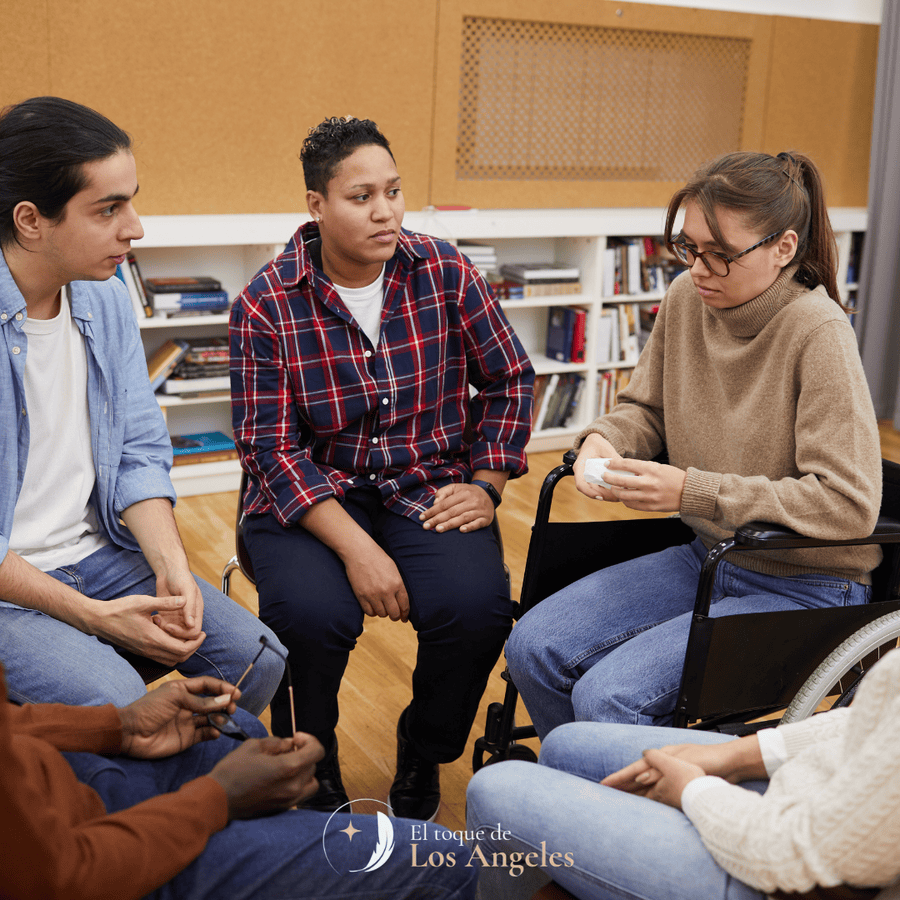
The Mourning for Homicide
When loss is accompanied by violence and injustice, we are here to provide support and guidance on this difficult journey.
Grief after a homicide is one of the most heartbreaking experiences, as it combines the pain of loss with the shock of violence and a sense of injustice . This type of grief brings deep emotions such as anger, disbelief, and, in many cases, a constant search for answers.

Emotional and Psychological Impact
Grief over a homicide can be filled with anger, pain, and a need for justice.
The violence behind this loss leaves a deep wound in the parents, who often face a mix of emotions that are difficult to manage.
Anger and helplessness are common, especially when clear answers or justice are not forthcoming. In addition, feelings of insecurity and fear can intensify after the loss. It's important to recognize these emotions as part of the process and find healthy ways to express them. Although grief after homicide is unique, with the right support, it's possible to find the strength to move forward.
Grief for femicide has particularities that make it especially complex.
How does this type of loss affect?
Feelings of injustice:
Homicide often leaves a deep sense of injustice, especially if there are no clear answers or if the justice system fails to offer satisfactory solutions. This anger and frustration can be overwhelming and take time to process.
Anger and helplessness:
It's common to feel a mixture of anger and helplessness in the face of loss, not only toward the perpetrator, but also toward the circumstances that allowed it to happen. These emotions are valid and a normal part of grieving.
Fear and insecurity:
After a violent loss, parents may experience fear for their own safety or that of other family members. This fear can make them feel vulnerable or withdrawn.
Deep pain:
The violent nature of this loss can intensify the pain, especially if details are unknown or the circumstances were traumatic. This pain can seem overwhelming, but it can be worked through with emotional support.

How to Accompany this Type of Grief
Grieving after a homicide requires constant support and space to process intense emotions.
Allow yourself to feel your anger, sadness, and disbelief without judgment. Talking about your loss with trusted people can help ease the emotional burden.
If you feel a need for justice, channel your emotions constructively with the support of professionals and networks that can help you. It's also helpful to take symbolic actions to honor your child's memory, such as writing a letter or creating a space in their honor. Don't be afraid to seek professional help if the grief becomes overwhelming. You don't have to face this process alone.
Try to keep in mind
Allow yourself to feel all your emotions:
Anger, sadness, and helplessness are natural responses to the violence of this loss. Don't judge yourself for what you feel; every emotion has its place in your healing process.
Seek support from those around you:
Talking about your loss with trusted people can help you release your emotions and find comfort. Don't be afraid to express your feelings to those who support you.
Channel your emotions constructively:
If you feel a need for justice, seek out legal or social support networks that can support you. Participating in memory or awareness-raising activities can help you transform your grief into action.
Seek professional help:
A grief and trauma therapist can help you work through difficult emotions, such as anger and frustration. Don't be afraid to ask for help if you need it.
Honor your child's memory:
Perform symbolic acts that connect you with their memory, such as lighting a candle, creating a space in their honor, or doing activities in their memory. This can help you process grief with love.
Resources and Support
At El Toque de los Ángeles , we provide you with specific resources to help you through your grieving process:
-
Access to professionals
Regular price $0,00 COPRegular priceUnit price / per -
Mother-to-mother accompaniment
Regular price $0,00 COPRegular priceUnit price / per -
Healing workshops
Regular price $0,00 COPRegular priceUnit price / per -
Mutual support groups
Regular price $0,00 COPRegular priceUnit price / per
Voices of Strength and Hope
-
Maria, Pedro's mother, 30 years old
Losing my son in an accident was something I never imagined I would experience. For a long time, I couldn't accept what had happened. At the foundation, I found people who listened and understood me, and little by little, I learned that it's okay to grieve, but it's also okay to go on living.
-
Luisa, finding strength in the midst of pain
I never imagined I could find peace after what happened, but little by little I learned that it's possible to move on with your life. Today I honor my daughter by fighting for me and for her memory.
-
Marta, Camilo's mother, 21 years old
Sharing with others who understood my pain was what helped me move forward. The foundation gave me tools to work through my emotions and feel supported during this difficult process.
We accompany you with love and understanding in these times of pain.
We know grief can feel overwhelming, but you don't have to carry it alone. This space is for you: a place where you'll find comfort, understanding, and a support network made up of people who understand what you're going through a little better, from their own experiences.




